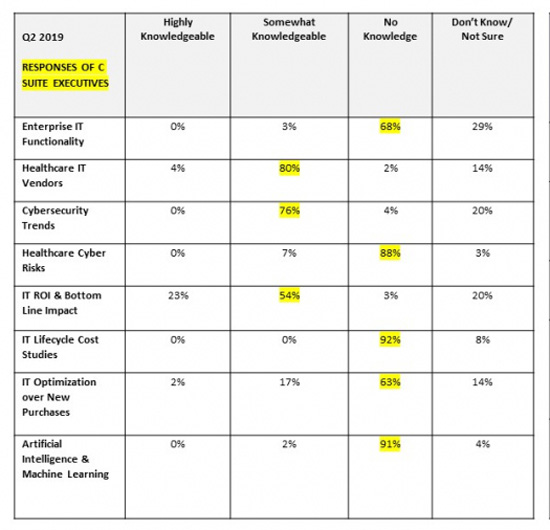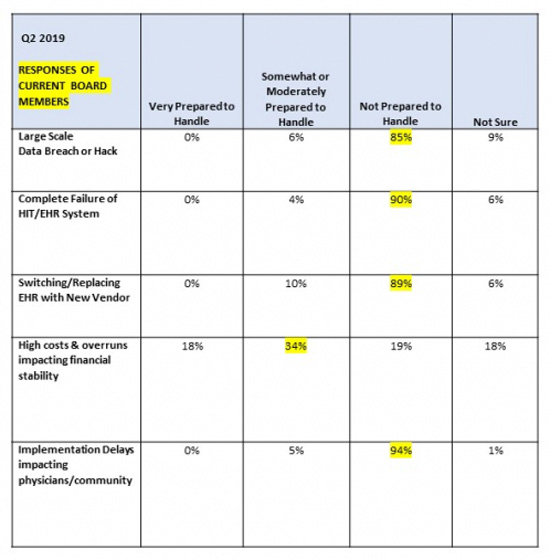Health Systems Boards Lack Sufficient Oversight Over Technology, Survey Reveals
A Q2 2019 poll, Black Book sought to identify the technology presence in the boardroom of hospital and health systems to discover that over two-thirds of those surveyed had little to no significant tech expertise on their board of directors. Among currently serving board members, 4% have direct technology experience relevant to the health care industry.
According to the C-Suite executives polled, 91% of hospital boards rely entirely on consultants for IT strategy and advisement rather than the health care tech expertise of trustees. “The advisors on which health system boards depend are historically inclined to give very broad advice on vendor selections and the competitive landscape, which may not motivate digital transformation, but will keep the organization from lagging behind,” says Doug Brown, founder of Black Book Research.
A Black Book survey recently asked 494 C-Suite hospital executives, “As a collective governance group, how tech-savvy is your organization's board on the following Issues?” (See Table 1 below for results.)

Of the 308 board members surveyed separately, Black Book found 79% feel they receive too little data and or feedback on tech challenges facing the health system.
Only 5% of these board members polled have a dedicated technology committee. Trustees and board members in both for-profit and not-for-profit health systems were polled, “As a collective governance group, how prepared is your organization's board on the following Issues?” (See Table 2 below for results).

80% of CFOs and senior finance leaders disclosed their belief that board members were not impartial in recent vendor selection processes and approved spending that was influenced mainly by either another board member, corporate management and/or the vendor sales executives. Board members being unaware or uninformed of health system technology issues and concerns also increases large, enterprisewide spends for software and services not well understood, according to 92% of CFOs participating in the polls.
“Overspending on IT is just as risky as being overly frugal, so health system boards must ensure they are not encouraging leadership to buy more than is needed or to just get by or layer older technology to save money,” Brown says.
Regarding disruptive technologies to the current health system mission, 76% of executives state their hospital board could not identify new technologies such as artificial intelligence, machine learning, or patient privacy monitoring to understand as a group the risk-benefit equation of their IT approvals and spending choices.
“Up until governmental EHR incentives, the alignment of technology with patient care, quality and financial success meant that IT prowess was needed only at the operational level, but health systems in 2019 are implementing technology supports external-facing functions like marketing, analytics, intelligence, and interoperability, as well as supporting board affairs including strategy, vision, strategic and accountability.”
“Health systems boardrooms are definitely becoming smarter about digital technology but it is a slow work in progress,” Brown says.
— Source: Black Book



